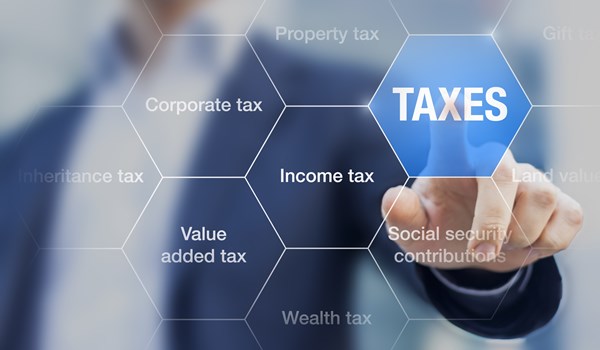Jurisdictions
Regions
Industry Sectors
04/09/20
GLOBAL REGULATION: OECD Tax Chief Says Recovery Needs New Thinking On Taxes.

As published on law360.com, Thursday 3 September, 2020.
In the post-coronavirus recovery, countries should look to other types of revenue rather than income and consumption taxes, including carbon taxes and taxes aimed at valuable assets or investments, the OECD's top tax official said Thursday.
Pascal Saint-Amans, the Organization for Economic Cooperation and Development's director for tax policy and administration, said on the OECD's website that international tax transparency could allow countries to tax capital income to a degree not possible in prior global recessions as they look to recover revenue lost during the pandemic.
"Raising taxes on labor and consumption, as was done in the wake of the 2008 global financial crisis, may be difficult politically and in many cases not desirable from an equity perspective," Saint-Amans said. "Governments will need to find alternative sources of revenues."
In the past decade, countries have increased information sharing about financial data under programs such as the OECD's common reporting standard and the U.S. Foreign Account Tax Compliance Act , which have made it much more difficult to hide income or assets from tax authorities. Saint-Amans said that these new norms could give governments new routes to consider for lost revenue.
"The taxation of property and personal capital income will have an important role to play, particularly in a context of significant improvements in international tax transparency," he wrote.
Saint-Amans told Law360 that he wasn't necessarily referring to a direct tax on wealth, an idea that has gained recent notice in the U.S., especially during the 2020 Democratic Party primaries. Rather, with more information about where citizens have invested, tax authorities could more aggressively tax those gains, such as with graduated progressive tax rates on capital gains.
"Not necessarily taxing more, but taxing better," he said.
Countries rebuilding their economies should prioritize the acceleration of "environmental tax reform," Saint-Amans also wrote, noting that 70% of carbon emissions from energy use in the nondeveloping world are currently untaxed.
"Adjusting taxes, along with state subsidies and investment, will be unavoidable to curb carbon emissions," he said.
Saint-Amans also issued a warning about trade wars, which Europe and the U.S. could face next year if the OECD doesn't resolve disagreements on the taxation of the digital economy. France and the U.K. are both set to begin collecting a digital services tax on online transactions next year, while the U.S. has said it would respond with potential tariffs on products from those countries.
Both countries, along with the rest of the OECD members, are currently negotiating over compromises that would change taxation of some multinational companies while avoiding taxing specific industries or transactions, but the project has been stalled since last year.
"Rising pressure on public finances as well as increased demands for fair burden sharing should provide new impetus for reaching an agreement on digital taxation," Saint-Amans said. "International tax cooperation will be even more necessary to prevent tax disputes from turning into trade wars, which would harm recovery at a time when the global economy can least afford it."



